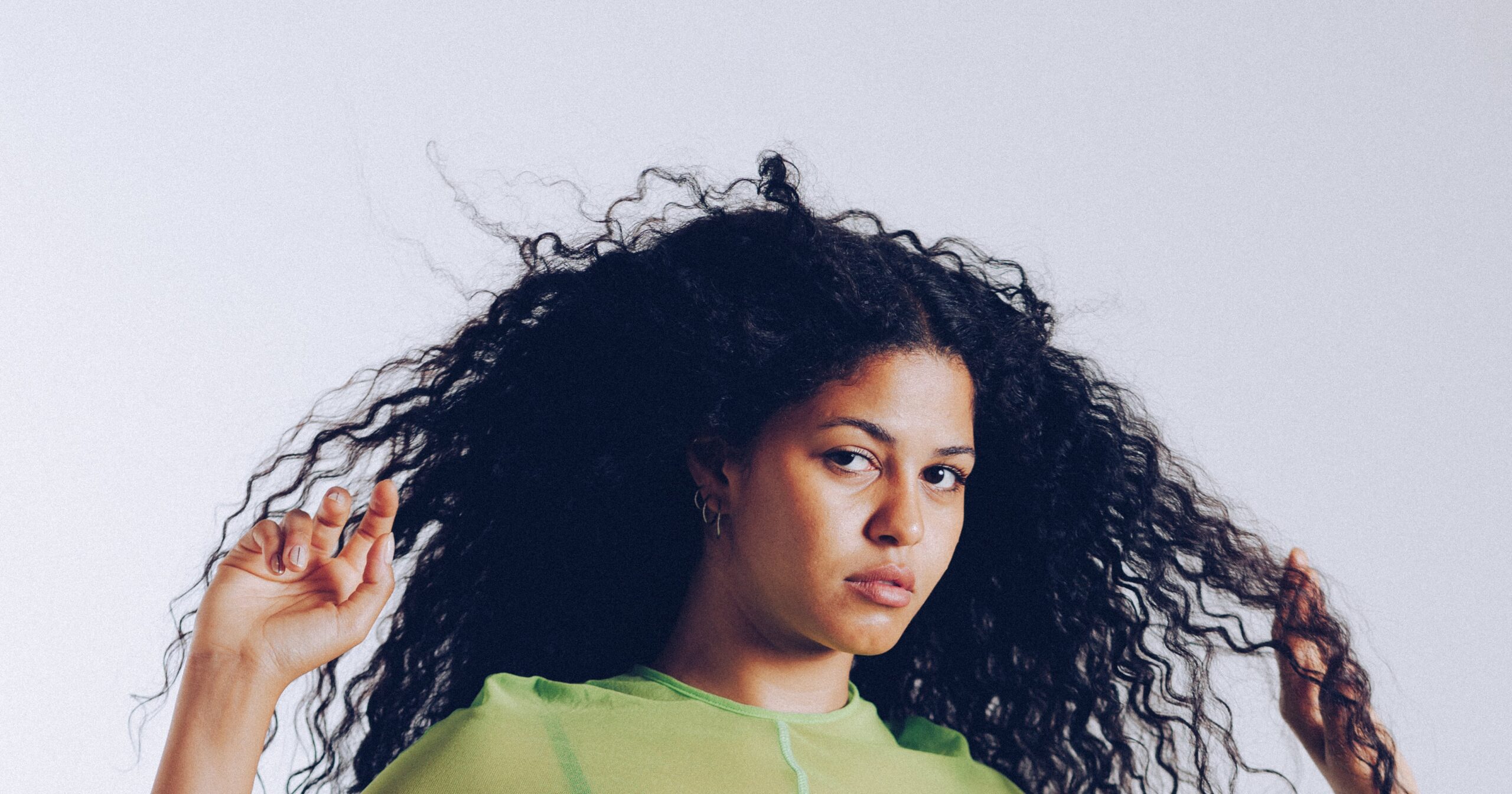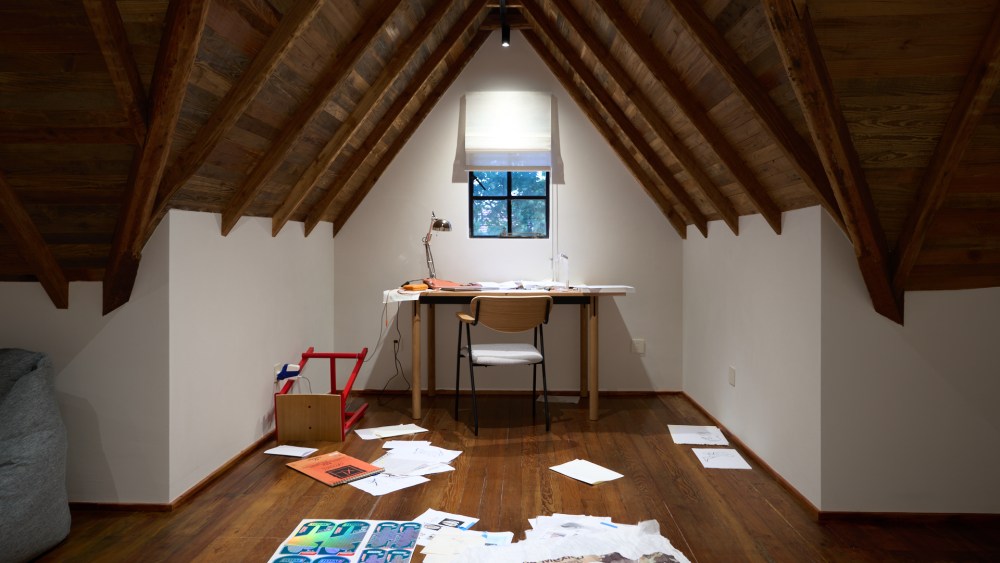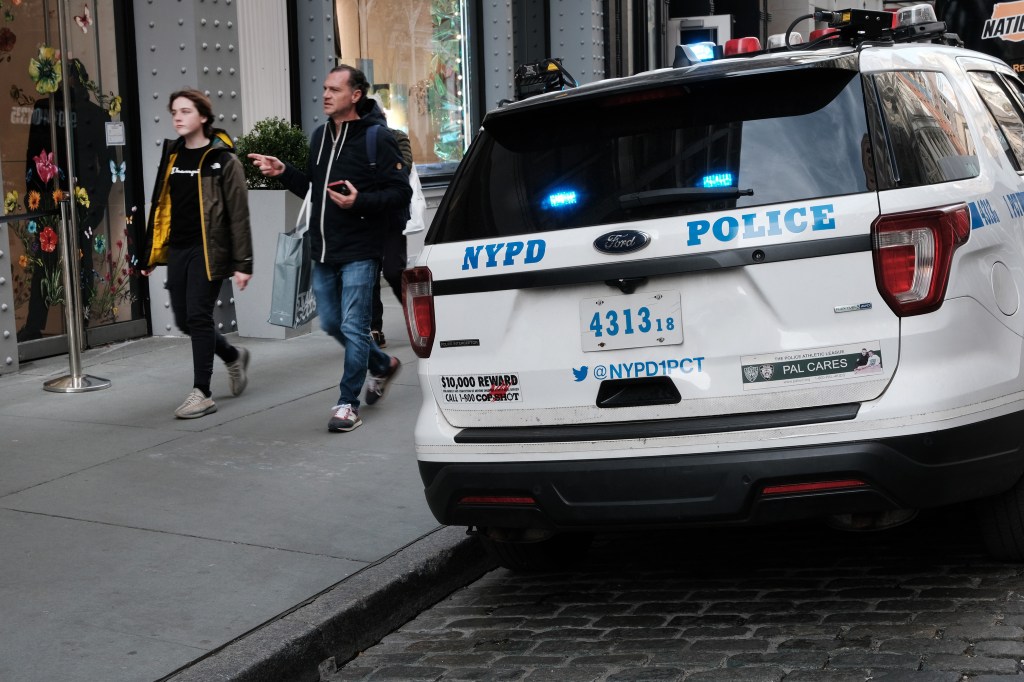This Latine Heritage Month, our “Mi Historia” series spotlights Latine celebs as they share how their families’ immigration stories shaped who they are – and why telling these stories is vital to empowering immigrant communities.
When Yendry first broke out in 2019, she made a name for herself by blending genres – from dembow and R&B en español to experimental pop and bachata – all delivered with raw emotion.
But from the start, identity was central to her artist persona, too. Often mistaken for being half Dominican and half Italian because she was raised in Italy and carries the last name Fiorentino, Yendry has always clarified that she was born in Santo Domingo, the capital of the Dominican Republic, to Dominican parents. Her Italian last name comes from her stepfather, who entered her life when she was 4 years old and raised her as his own.
“When I was growing up, I was annoyed by my story. You know you want to be cool, and you’re a teenager, and I didn’t fit in, in Italy,” Yendry tells Popsugar. [Once] I started talking about it in my art, that’s when I was like, okay, this is a plus. I have way more life experience than maybe someone else who has just lived in one place their whole life.”
Yendry embraces both cultures – the Dominican one she was born into and the Italian one that raised her. It shaped who she is today; immigrating to a new country at a young age meant having to learn a new language and an entirely new culture while growing up surrounded by people who looked nothing like her. This made fitting in a constant challenge. Now, she reflects not only on the beauty of being an immigrant but also on the urgent need for immigrants to be treated with more humanity and empathy today.
Yendry was just 2 years old when her mother left the Dominican Republic to start a new life in Italy. At the time, her mother was 26 and no longer with Yendry’s father, who had migrated to New York City with the hope of earning enough money to eventually reunite the family. For about a year, Yendry remained in the Dominican Republic, cared for by her grandmother, aunts, and uncles, until her mother was stable enough to bring her to Italy. Her aunt – her mother’s sister – had already migrated there with a few friends in search of better opportunities and encouraged Yendry’s mom to do the same. Coming from a poor family that was barely getting by back home, the move was a leap of faith towards survival and the chance for something more.
“I think at that time they were just trying to survive. They didn’t really have a clear view of the future,” the singer tells Popsugar. “My family is a very humble family. My mom had 13 siblings. No dad. And so, my grandma had to raise them all on her own. Some of them even went to other families. It was really hard and tough for them.”
While Yendry doesn’t have vivid memories of her move to Italy, she occasionally experiences flashbacks from that time – fleeting moments from her early days attending pre-K that have stayed with her.
“I have flashbacks of feeling like, ‘What the fuck is this?’ Why is everyone white?” she shares. “I do remember that. I was like, ‘Everyone looks different.’ I remember having the feeling of being different and the looks that people would give me. We were in the countryside, so people were not used to seeing people like me. There were no brown kids at all.”
By the time Yendry was 15, she had fully assimilated into Italian culture and was completely fluent in the language. Even her mother had become fluent by then, as they eventually began speaking mainly Italian at home to perfect their skills. However, it was also during this period that Yendry started to feel a growing distance from her Dominican roots, especially because financial struggles prevented her and her mother from visiting the island as often as they would have liked. A phone call from her biological father in New York, however, was enough to spark a reconnection with her Dominican identity.
“I was around 15 when my father reached out and was like, ‘Hey, I want to get to know you.’ I was like fuck, now I have to relearn Spanish. But it came natural,” she says.
The Dominican-Italian singer welcomed the chance to reconnect with her biological father and said she held no resentment toward him. She deeply empathized with the circumstances that had led both of her parents to immigrate to different countries in search of a better life, despite still being very much in love.
“Basically, they kind of split. It was just life. My mom told me that he was also really poor. He was only 19 when I was born,” she says. “They were so young, and they were both working hard for their families to provide. His mom, my grandma, was in a wheelchair and his father left. He had four brothers – four siblings. They were both trying to hustle.”
Both of Yendry’s parents had once dreamed of making enough money in the countries they had immigrated to, with the hope of one day reuniting as a family. But the struggle was real – especially for her father in New York City, where the cost of living was too high for him to support his family. Eventually, the two accepted that their paths had to part, and Yendry’s mother became a full-time single mom. In time, she found love again in Italy, where she built a new life and had two more children with Yendry’s stepfather.
Her parents’ story, combined with her own immigration journey, is why Yendry believes there must be much more empathy and understanding of the realities of immigration.
“I just feel like it’s a little ignorant how people don’t like to go deeper into things. The most annoying question I get asked in Italy is, ‘Why did you come here? Why did you choose Italy?’ And I’m like, first of all, I didn’t choose,” she says. “Do you think if I really had a choice, I would go to another country? Do you think that if my mom had a choice, she would’ve given up her friends, family, land, culture, language, way of being, just to go explore another country, just because she wanted to? I just don’t understand how sometimes people don’t get that part.”
Since reconnecting with her father, immersing herself in her Dominican culture has become central to Yendry’s life. Once she was financially able, she made it a priority to visit her family in the Dominican Republic at least once a year. She also travels to New York as often as she can to see her dad and his side of the family – another place she admits feels like home.
Though fluent in Italian, Yendry’s Dominican Spanish is unmistakable. As her first language, it has always felt the most natural, which is why she chooses to make most of her music in Spanish. Her Dominican heritage is not only woven into her sound but also into her style and music. She embraces her long curls and natural curves – features she once struggled to appreciate while growing up in Italy, where European beauty isn’t just the standard – it’s the norm. Today, her culture shines through in her artistry, with songs like “KI-KI,” a vibrant dembow, and “Herrera,” a soulful bachata, both of which carry strong Dominican influences.
Two years ago, Yendry found herself once again in survival mode, immigrating from Italy to Los Angeles for her music career. While the adjustment was initially quite challenging, the experience has served her well. She also found love in LA.
“I’ve been here for two years, but one year properly with a visa. Before I was back and forth,” she says. “I was like, ‘Fuck, I have to start from scratch again.’ It was traumatic. I got here and was like, I can’t walk here. Literally, I can’t walk, so I got myself a bicycle, but I ended up on the highway because the city isn’t built for bikes. It’s just crazy.”
Living as an immigrant in the US has brought a lot into focus for Yendry. She’s accepted that while she doesn’t fully belong to any one place – not Italy, the Dominican Republic, New York, or Los Angeles – she’s finally at peace with that. Instead, she’s come to see that each of these places holds a piece of home for her.
“You have to accept as an immigrant that your whole life you are going to be looking for a home. And I feel like my whole life I never felt like I belonged to Italy, but when I go to the DR, sometimes I don’t feel like I belong there either because I grew up with a different mindset, with a different language, and different music as well,” she says. “I’m constantly trying to feel at home, and as an immigrant, I’m always in search of that, and I’m always homesick. At first, I was struggling with it, and now I’ve just made peace with the fact that I’m going to move a lot, and I’m probably not meant to be in one place.”
“You have to accept as an immigrant that your whole life you are going to be looking for a home.”
Yendry’s experience has even influenced a new song she recently recorded, which she plans to include in her upcoming album, slated for release sometime in 2026.
“When I became willing to share my story and willing to open up, that’s when music worked for me. I feel like people connect to real things,” she says. “I think that my immigration story really served as a fuel to write and start writing, and then from there, I obviously want to grow more, and hopefully I’ll get way more experience in life to be able to tell more stories and maybe even start telling other people’s stories.”
In fact, she believes positive immigration stories are more important than ever – especially in the times that we’re living in.
“They always felt super important to me, but today I feel like we need these stories. I feel like we’re getting farther and farther from what makes us human in general,” she says. “I feel like we’re not as empathetic as we used to be as human beings. I don’t know if it’s the technology or the isolation that technology takes us to, I don’t know… but immigration has always happened.”
Johanna Ferreira is the content director for PS Juntos. With more than 10 years of experience, Johanna focuses on how intersectional identities are a central part of Latine culture. Previously, she spent close to three years as the deputy editor at HipLatina, and she has freelanced for numerous outlets including Refinery29, Oprah magazine, Allure, InStyle, and Well+Good. She has also moderated and spoken on numerous panels on Latine identity.




